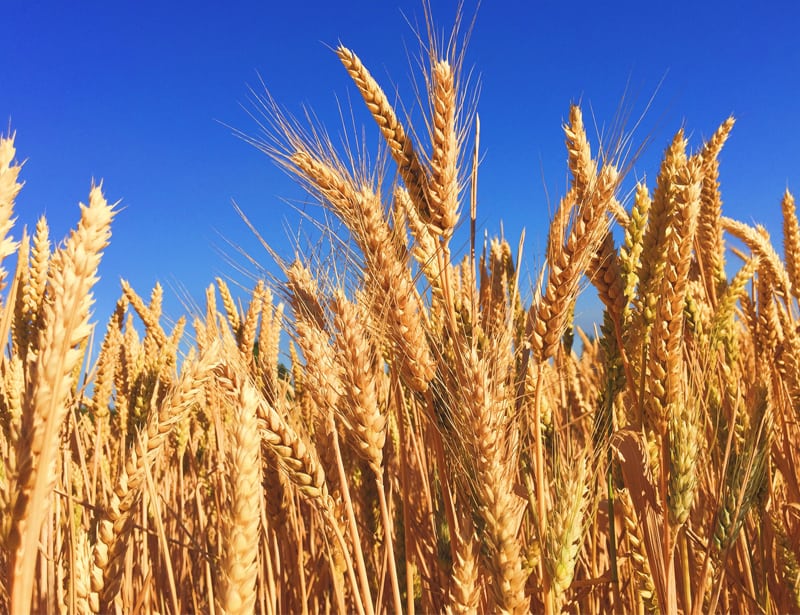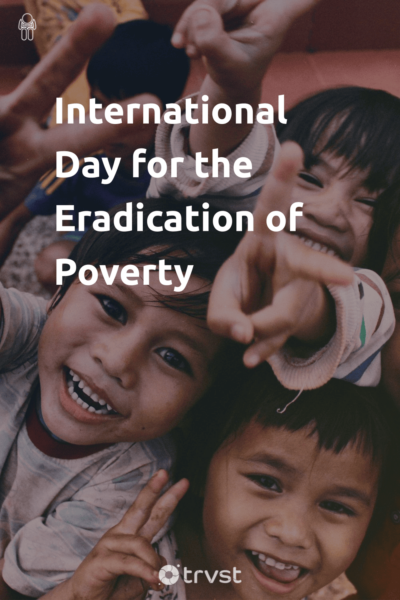International Day for the Eradication of Poverty
Mark your calendars for October 17th to observe the International Day for the Eradication of Poverty, which the United Nations has recognized since 1992. This day highlights how extreme poverty violates human rights, affecting many other factors to live a comfortable life.
So, let's mark this day on our calendars and our minds. Let's remember that we all have a part to play in the fight against poverty. Because together, we can make a difference. Read on to learn more.
Featured in: October - Awareness Months, Days & Observances.
History and Background of International Day for the Eradication of Poverty

Back on October 17, 1987, a French priest and activist, Father Joseph Wresinski, led an army of 100,000 people to Trocadéro in Paris, where the General Assembly signed the Universal Declaration of Human Rights in 1948,
Initially called World Day to Overcome Poverty, the day was filled with people honoring those who had suffered from poverty, hunger, violence, and fear. Wresinski's powerful message echoed across the plaza: poverty is not just a hardship. It's a major breach of human rights2.
In 1992, four years after the priest’s death, the United Nations put its official stamp on the day. October 17 became the International Day for the Eradication of Poverty, thanks to UN's Resolution 47/196. It has evolved into a global platform, providing individuals grappling with hunger an opportunity to have their concerns heard.
To further solidify the global fight against hunger, the United Nations in 2015 listed "No Poverty" as the premier goal among its 17 Sustainable Development Goals. This ambitious plan aims to shape a more prosperous, equitable world by 2030.
In 2023, the observance's theme is “Decent Work and Social Protection: Putting Dignity in Practice for All.” Moreover, it underscores the importance of employment and social safeguards to uphold human dignity.
Related Read: World Food Day, National Nutrition Month.
The Cause and Its Challenges
The International Day for the Eradication of Poverty mainly focuses on hunger and its consequences. Imagine this: nearly one in ten people, or about 828 million people, do not get enough food to eat, according to Our World In Data.
Poverty-induced hunger is an international crisis intricately linked to global health and education challenges, especially in developing countries. Malnutrition, birthed from hunger, directly affects health by weakening the immune system, making individuals more susceptible to diseases.
Consequently, poor health hinders children's school attendance and learning capabilities, creating systemic educational disadvantages propagating the cycle of poverty.
Innocent and helpless children carry the heaviest burden of overcoming extreme poverty1. In 2022, chronic undernutrition escalated to the level where it impacted 22% of children under five, resulting in stunting - demonstrating a low height-for-age - which leads to potentially irreversible cognitive and physical harm.
Furthermore, the recent pandemic has worsened the situation, adding an estimated 150 million people to the statistics of hungry people at the end of 2021.
Efforts and Initiatives

On an international level, the United Nations' Sustainable Development Goals (SDGs), specifically Goal 2: Zero Hunger, aims to cut poverty in half by 20303.
Various governments worldwide take initiatives to combat hunger. Examples include Brazil's Fome Zero strategy, prioritizing food security, and the US Supplemental Nutrition Assistance Program (SNAP).
There is also Africa's Comprehensive African Agriculture Development Program and India's Public Distribution System, effectively providing subsidized food grains to millions.
Then there are the private sector initiatives like The Whole Planet Foundation's "Poverty is Unnecessary Project.” This project provides microcredit to entrepreneurs in disadvantaged communities worldwide to alleviate poverty by fostering self-reliance and economic growth.
How to Get Involved and Support the Cause

- Consider sponsoring a child or family in a developing country, providing them access to essential education and healthcare.
- Encourage your neighbors to host feeding programs for poor people.
- Organize fundraising events, such as charity runs or bake sales, to gather finances for poverty eradication initiatives.
- Volunteer at local non-profit organizations, aiding in various fields, from childcare to meal preparation.
- Use social media platforms to raise awareness about poverty and highlight the importance of poverty eradication efforts. Use the hashtag #EndPoverty.
- Lobby policymakers to create programs that fight poverty in local communities.
Conclusion
The International Day for the Eradication of Poverty is a powerful global call to arms. It brings to stark light the many faces of poverty, which is not limited to financial hardship. Confronting poverty is not a solitary battle. It's a collective effort, and this day serves as a reminder of that shared duty. Let’s stand up, speak out, and eradicate poverty together.
International Day for the Eradication of Poverty FAQs
The International Day for the Eradication of Poverty is a UN-recognized day observed annually on October 17th to promote worldwide awareness and action towards ending poverty.
Poverty is a fundamental violation of human rights and a barrier to social, economic, and environmental progress. Ending hunger is crucial for achieving sustainable development and ensuring a fair and just society for all.
Some of the main challenges include lack of access to quality education, healthcare, clean water, and sanitation, as well as inadequate employment opportunities and social exclusion.
You can support the cause by raising awareness about poverty-related issues, volunteering with organizations working to alleviate poverty, donating to charities, and advocating for policies that address poverty and inequality.
Through organizations like the United Nations and its agencies, the international community works to mobilize resources, implement poverty reduction strategies, promote social protection programs, and foster international cooperation to address the root causes of poverty and achieve sustainable development.
| 1 |
Safety, N. a. F. (2023). Levels and trends in child malnutrition: UNICEF/WHO/World Bank Group joint child malnutrition estimates: key findings of the 2023 edition. www.who.int. |
| 2 |
Guisti, A. (2003). Peace profile: Father Joseph Wresinski. Peace Review, 15(4), 499–505. |
| 3 |
Ritchie, H. (2023). Hunger and undernourishment. Our World in Data. |
Isabela is a determined millennial passionate about continuously seeking out ways to make an impact. With a bachelor of science degree in civil engineering with honors, Isabela’s research expertise and interest in artistic works, coupled with a creative mindset, offers readers a fresh take on different environmental, social, and personal development topics.

